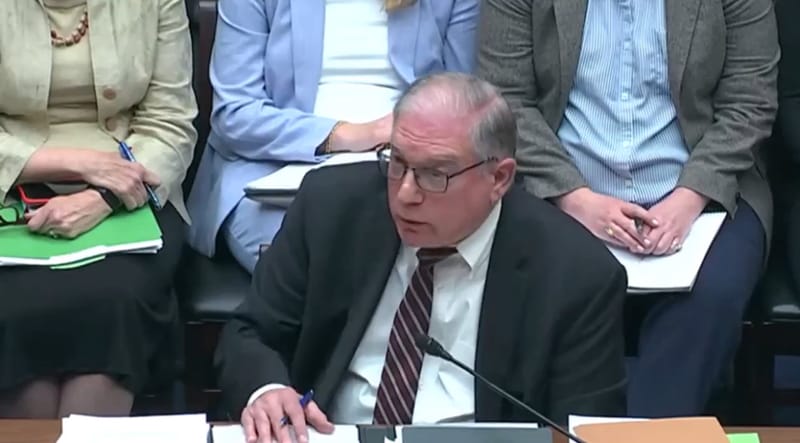Trump Administration Shuts Down NIH Beagle Testing Lab, Ending Decades of Controversial Experiments
Move Praised by Animal Rights Groups as a Victory Against Cruelty Linked to Fauci’s NIH Tenure WASHINGTON D.C. - In a decisive move hailed by animal rights advocates, the Trump administration has closed the National Institutes of Health’s (NIH) last remaining beagle experimentation laboratory, effectively ending a
Move Praised by Animal Rights Groups as a Victory Against Cruelty Linked to Fauci’s NIH Tenure
WASHINGTON D.C. - In a decisive move hailed by animal rights advocates, the Trump administration has closed the National Institutes of Health’s (NIH) last remaining beagle experimentation laboratory, effectively ending a program that has drawn widespread criticism for its alleged cruelty. The announcement, made by NIH Director Dr. Jay Bhattacharya on May 4, 2025, marks a significant shift in federal research policy and comes in the wake of renewed scrutiny over experiments linked to former NIH official Dr. Anthony Fauci.
The laboratory, located on the NIH campus in Bethesda, Maryland, was accused of subjecting thousands of beagles to painful and often fatal experiments over the past four decades. Reports from the White Coat Waste Project, a watchdog group opposing taxpayer-funded animal testing, detailed procedures that included pumping pneumonia-causing bacteria into beagles’ lungs, inducing septic shock, and bleeding them out for research purposes. These revelations, first brought to public attention in 2021 during Fauci’s tenure as director of the National Institute of Allergy and Infectious Diseases (NIAID), sparked bipartisan outrage and fueled the #BeagleGate controversy.
🚨 NEW: The Trump administration's NIH under Jay Bhattacharya has just closed its "brutal" beagle experimentation laboratory - Fox
— Eric Daugherty (@EricLDaugh) May 5, 2025
It was accused of "brutally k*lling thousands of beagles for 40+ years." pic.twitter.com/99dmoZ6FXT
Dr. Bhattacharya, appointed by President Donald Trump, announced the closure during an interview on Fox News, emphasizing a new policy to replace animal testing with advanced technologies like artificial intelligence. “It’s very easy to cure diseases in mice, but those results don’t always translate to humans,” Bhattacharya said. “We’re moving toward innovative, human-based science that reduces animal use while advancing medical research.” He confirmed that all beagle experiments on the NIH campus have been terminated, a statement echoed by the NIH on social media.
The decision follows a post by Elon Musk, head of the Department of Government Efficiency (DOGE), who vowed to investigate NIH funding for beagle experiments just days before the announcement. The White Coat Waste Project, which has long campaigned against such testing, praised the move. “As the watchdog that uncovered Fauci’s beagle tests, we’re proud to have closed the NIH’s last in-house beagle lab,” said founder Anthony Bellotti. “We applaud President Trump for cutting this wasteful spending.”
I’ve been working to end the NIH’s cruel in-house beagle testing for years.
— Congressman Troy E. Nehls (@RepTroyNehls) May 5, 2025
Thanks to President Trump, no more dogs will be abused or killed at this federal lab.
It’s simple: Taxpayer dollars shouldn’t be used to fund cruel experiments on animals. @WhiteCoatWaste pic.twitter.com/HREdXK4YAy
The closure has garnered support from animal rights organizations, including People for the Ethical Treatment of Animals (PETA), which sent flowers to Bhattacharya in a rare gesture of approval. “This is a crucial step toward modernizing science,” said PETA’s Kathy Guillermo. “These experiments, especially those involving sepsis, have failed to deliver for humans while causing immense suffering to animals.” PETA noted a pending lawsuit from the Biden era aimed at halting further government-funded sepsis studies on animals.
The controversy surrounding the NIH’s beagle experiments gained traction in 2021 when reports surfaced that NIAID, under Fauci’s leadership, funded studies involving beagles in the U.S. and abroad. One study, allegedly costing $375,800, involved drugging beagles and locking their heads in mesh cages filled with infected sandflies in a Tunisian lab. Although NIAID later denied funding that specific study, citing an erroneous attribution, documents obtained via Freedom of Information Act requests confirmed other experiments where beagles underwent cordectomies—surgical removal of vocal cords—to reduce barking, a procedure critics decried as inhumane.
NEW: The Trump administration halts cruel Beagle experimentation at the NIH. pic.twitter.com/gN6AsmYiZi
— Resist the Mainstream (@ResisttheMS) May 5, 2025
Rep. Nancy Mace (R-S.C.), who led a bipartisan letter in 2021 demanding answers from Fauci about the experiments, celebrated the lab’s closure. “This is a victory for compassion and accountability,” Mace said. “No animal should endure such barbaric treatment, especially not on the taxpayer’s dime.”
The Trump administration’s broader push against animal testing builds on actions from its first term, including the 2019 closure of the government’s largest cat experimentation lab. The FDA and EPA have also been recognized by PETA for reducing animal testing, sparing tens of thousands of animals annually.
While the NIH and the White House did not immediately respond to requests for comment, the closure signals a turning point in the debate over animal testing in federal research. Critics argue that the experiments, often justified as necessary for developing treatments for human diseases like HIV/AIDS and leishmaniasis, have yielded limited results compared to modern alternatives. Supporters of the research, however, maintain that animal models remain essential for certain studies, citing regulatory requirements from the FDA.
For now, the beagles have become a symbol of change in Washington. “Dr. Bhattacharya has made a wonderful start,” Guillermo said, “but there’s more work to do to end animal testing across the country.” As the Trump administration continues to reshape federal science policy, the fate of other animal research programs remains a focal point for activists and lawmakers alike.

